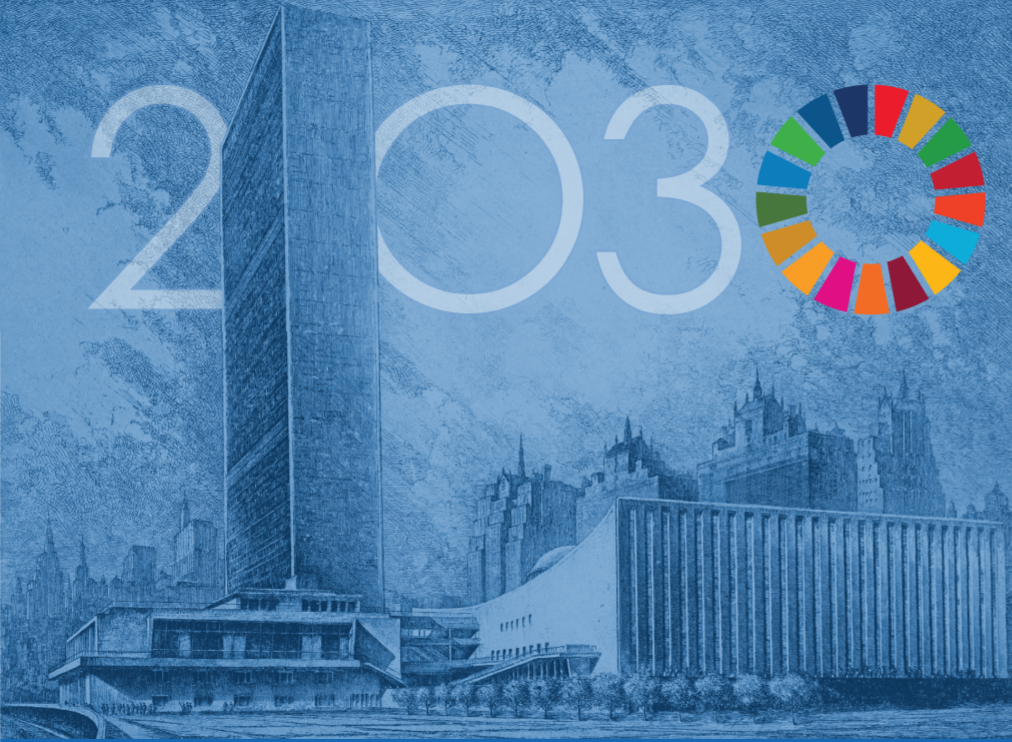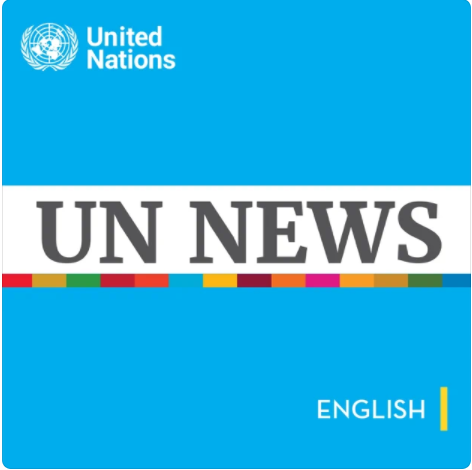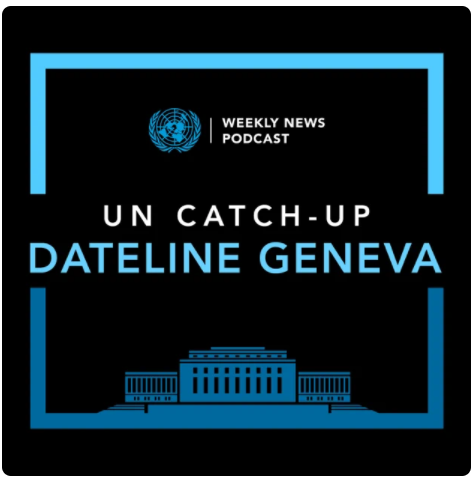The United Nations General Assembly has stressed that the criteria and procedures contained in the guidelines should be taken into account in considering future proposals for international celebrations (see in particular General Assembly decision 35/424 and resolution 53/199 and resolution 61/185). On occasion, prior to the General Assembly proclaiming specific international days, International weeks, International years, and International Decades. The United Nations specialized agencies have adopted decisions supporting the establishment of these observances.
Upcoming Observances
Take Action for the Sustainable Development Goals.
AREAS OF ACTIONS
ISSUES OF CONCERN
-
AGENDA 2063 is Africa’s blueprint and master plan for transforming Africa into the global powerhouse of the future. It is the continent’s strategic framework that aims to deliver on its goal for inclusive and sustainable development and is a concrete manifestation of the pan-African drive for unity, self-determination, freedom, progress and collective prosperity pursued under Pan-Africanism and African Renaissance The genesis of Agenda 2063 was the realisation by African leaders that there was a need to refocus and reprioritise Africa’s agenda from the struggle against apartheid and the attainment of political independence for the continent which had been the focus of The Organisation of African Unity (OAU), the precursor of the African Union; and instead to prioritise inclusive social and economic development, continental and regional integration, democratic governance and peace and security amongst other issues aimed at repositioning Africa to becoming a dominant player in the global arena.
-
The UN Programme on Ageing is part of the Division for Inclusive Social Development (DISD), United Nations Department of Economic and Social Affairs (UNDESA). It is the focal point within the United Nations system on matters related to ageing. The world’s population is ageing: virtually every country in the world is experiencing growth in the number and proportion of older persons in their population. The number of older persons, those aged 60 years or over, has increased substantially in recent years in most countries and regions, and that growth is projected to accelerate in the coming decades.
-
New HIV infections have fallen by 35% since 2000 (by 58% among children) and AIDS-related deaths have fallen by 42% since the peak in 2004. The global response to HIV has averted 30 million new HIV infections and nearly 8 million AIDS-related deaths since 2000. The UN family has been in the vanguard of this progress.
-
More than 30 countries worldwide are operating 444 nuclear reactors for electricity generation and 66 new nuclear plants are under construction. In 2014, 13 countries relied on nuclear energy to supply at least one-quarter of their total electricity.
-
The volume of data in the world is increasing exponentially. New sources of data, new technologies, and new analytical approaches, if applied responsibly, can allow to better monitor progress toward achievement of the SDGs in a way that is both inclusive and fair.
-
Every child has the right to health, education and protection, and every society has a stake in expanding children’s opportunities in life. Yet, around the world, millions of children are denied a fair chance for no reason other than the country, gender or circumstances into which they are born.
-
Climate change is one of the major challenges of our time. From shifting weather patterns that threaten food production, to rising sea levels that increase the risk of catastrophic flooding, the impacts of climate change are global in scope and unprecedented in scale.
-
The wave of decolonization, which changed the face of the planet, was born with the UN and represents the world body’s first great success. As a result of decolonization many countries became independent and joined the UN.
-
Democracy is a universally recognized ideal and is one of the core values and principles of the United Nations. Democracy provides an environment for the protection and effective realization of human rights.
-
While pre-pandemic global poverty rates had been cut by more than half since 2000, the COVID-19 pandemic could increase global poverty by as much as half a billion people, or 8% of the total human population.
-
The world is not on track to achieve Sustainable Development Goal 2, Zero Hunger by 2030. The food security and nutritional status of the most vulnerable population groups is likely to deteriorate further due to the health and socio-economic impacts of the COVID-19 pandemic.
-
Gender equality is not only a fundamental human right, but a necessary foundation for a peaceful, prosperous and sustainable world. Women and girls represent half of the world’s population and, therefore, also half of its potential. Gender equality, besides being a fundamental human right, is essential to achieve peaceful societies, with full human potential and sustainable development.
-
The World Health Organisation (WHO) defines health as ‘a state of complete physical, mental and social wellbeing and not merely the absence of disease or infirmity’ (WHO, 1948). This is consistent with the biopsychosocial model of health, which considers physiological, psychological and social factors in health and illness, and interactions between these factors. It differs from the traditional medical model, which defines health as the absence of illness or disease and emphasises the role of clinical diagnosis and intervention. The WHO definition links health explicitly with wellbeing, and conceptualises health as a human right requiring physical and social resources to achieve and maintain. ‘Wellbeing’ refers to a positive rather than neutral state, framing health as a positive aspiration.
-
The principle of universality of human rights is the cornerstone of international human rights law. This means that we are all equally entitled to our human rights. Women and girls represent half of the world’s population and, therefore, also half of its potential. Gender equality, besides being a fundamental human right, is essential to achieve peaceful societies, with full human potential and sustainable development.
-
Among the greatest achievements of the United Nations is the development of a body of international law, which is central to promoting economic and social development, as well as to advancing international peace and security.
-
Migration affects and is affected by all areas of sustainable development. Migration governance will be a success factor for the achievement of the 2030 Agenda and its 17 Sustainable Development Goals (SDGs).
-
Protecting seas and Oceans also protects Human Rights. The oceans had long been subject to the freedom of-the-seas doctrine - a principle put forth in the 17th century, essentially limiting national rights and jurisdiction over the oceans to a narrow sea belt surrounding a nation's coastline. The rest of the seas were declared free for all and belonged to none.
-
The UN accomplishes this by working to prevent conflict, helping parties in conflict make peace, deploying peacekeepers, and creating the conditions to allow peace to hold and flourish. These activities often overlap and should reinforce one another, to be effective.
The UN Security Council has the primary responsibility for international peace and security. The General Assembly and the Secretary-General play major, important, and complementary roles, along with other UN offices and bodies.
-
UNFPA advises against reactionary policy responses, which can be extremely harmful if they violate rights, health and choices. Instead, the agency calls for prioritizing reproductive health and rights for all through access to information and services in the face of fertility and demographic shifts. During the pandemic, disruptions in sexual and reproductive health services are aggravated where such services are deemed inessential.
-
Advocacy helps to transform policies and services that affect displaced and stateless people on a national, regional and global level. It is a vital part of our work at UNHCR. In both countries of asylum and countries of origin, we work within national political, economic and social structures to bring policies, practices and laws into compliance with international standards. In times of forced displacement, we use advocacy to influence governments, non-governmental partners and the public at large to adopt practices that ensure the protection of those in need.
-
The UN-Water Integrated Monitoring Initiative for SDG 6 has gathered the latest country, region and world data on all the global indicators for Sustainable Development Goal (SDG) 6, which is to ensure water and sanitation for all by 2030.
-
Today, there are 1.2 billion young people aged 15 to 24 years, accounting for 16 per cent of the global population. By 2030—the target date for the Sustainable Development Goals (SDGs) that make up the 2030 Agenda—the number of youth is projected to have grown by 7 per cent, to nearly 1.3 billion.
As youth are increasingly demanding more just, equitable and progressive opportunities and solutions in their societies, the need to address the multifaceted challenges faced by young people (such as access to education, health, employment and gender equality) have become more pressing than ever. Youth can be a positive force for development when provided with the knowledge and opportunities they need to thrive. In particular, young people should acquire the education and skills needed to contribute in a productive economy; and they need access to a job market that can absorb them into the labour force.
AUDIO PODCASTS: The week’s top news stories, interviews and insight from the United Nations in a 15-minute podcast. With UN Geneva and UN News teams Available every Friday.
The agenda of the 78th session of the United Nations General Assembly is contained in document A/78/251 and the allocation of items for the session is contained in document A/78/252. The draft programme of work of the plenary for the seventy-eighth session of the General Assembly was issued as document A/77/900.











